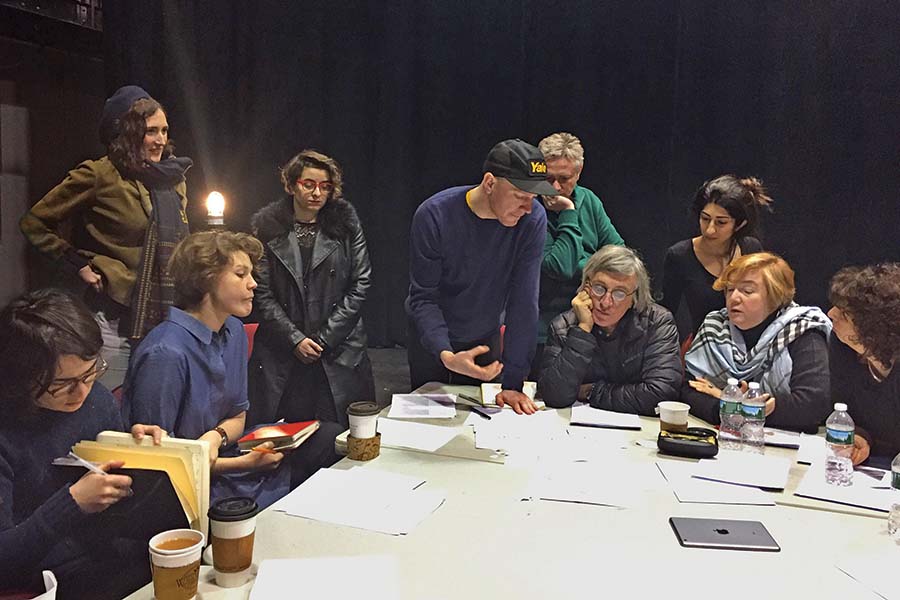Some tenets of the craft of directing can be taught, but whether learned or innate, one fundamental trait required of all directors is the ability to control a room. In that sense, directors are like dinner hosts: They build communities for people to gather in, channel the emotional energy of both the rehearsal room and the audience, and sometimes even tell folks where and when to sit.
Part of building a career as a director is learning what to serve. For Ed Iskandar—whose immersive works sometimes involve actual dinner and drink service—the menu of artistic possibilities was overwhelming when he first started out. “There was too much food being supplied,” he says. “Do I want to add food to the table? And if I am doing that, what food could I contribute?”
Undergraduate classes, graduate programs, and fellowships can all help directors hone their personal menus. Directors can begin to shape their artistic voices by tackling classic texts, or building worlds for new plays in the safety of the classroom. Today’s aspiring directors are entering a changing field—one in which the parameters of theatremaking are expanding and traditions of where and how theatre can be done are constantly being overturned. And social media plays into the long game of career-building and the self-marketing now required of directors.
In this special package, Pamela Newton takes a look at how training has evolved to include the art of generative theatremaking. Learning can take place outside of the classroom too: In another feature, six mid-career directors share networking tips, concede hard lessons learned on the job, and offer advice to directors entering the scene. And in Fabiana Cabral’s piece on veteran theatre directors, it’s clear that even with the passage of time and new trends in the field, the skill set for directors remains essentially the same: to find a voice, build a network, and bring people to your table.
Playwright/director Robert O’Hara likes to give audiences something to “navigate and digest” long after the curtain falls. “I want there to be something they have to chew on—and sometimes choke on—so that it actually lingers in their system after they get up from their seat,” he says. From table work to opening night, the end goal isn’t necessarily to be the hostess with the mostest, but to create an indelible experience for all.


